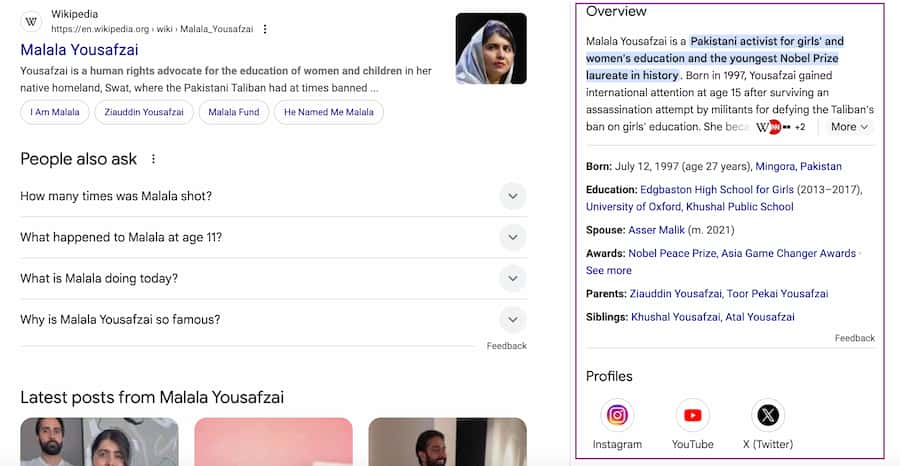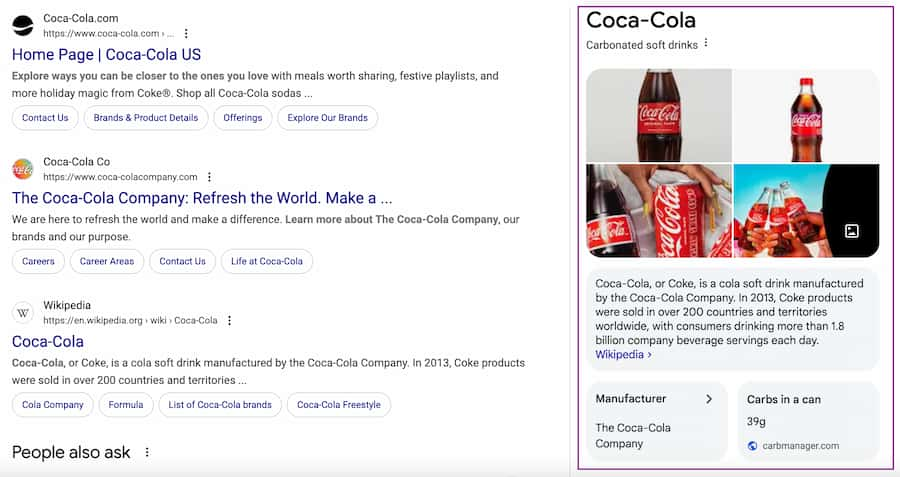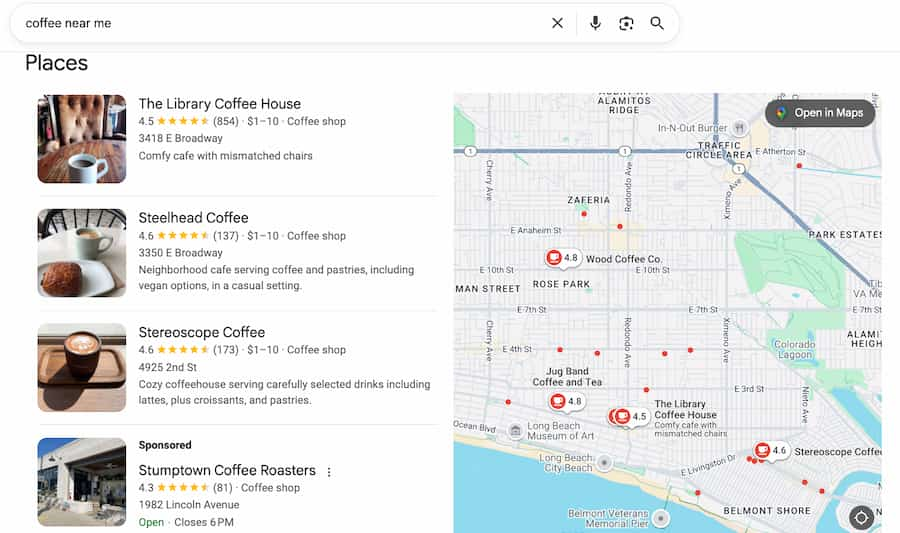Understanding Personal, Brand, and Local Knowledge Panels
You’re probably here because you’re interested in building or enhancing your own online presence on Google. Maybe you’re managing your personal brand, overseeing your company’s online image, or driving local visibility for a small business. In any case, understanding the differences between Personal, Brand, and Local Knowledge Panels is the starting point for stronger visibility and greater online credibility.
In this article, I’ll walk you through what distinguishes each type, explain how Google picks and chooses information, and give you practical strategies for improving or obtaining your own Knowledge Panel.
Key Takeaways
- Knowledge Panels are your digital calling card: Whether it’s your personal bio, company details, or local hours, these panels shape immediate audience impressions and build user trust.
- Each panel has its own purpose: Personal Panels highlight individuals, Brand Panels represent companies, and Local Panels support location-based searches.
- Google prefers reliable information: It values structure, consistency, and credible sources when deciding what makes the cut.
- Claiming your panel is necessary: Taking ownership means correcting inaccuracies, controlling your story, and strengthening your reputation.
Let’s dig deeper into each type, what makes them tick, and why they matter.
Types of Knowledge Panels
You’ve certainly encountered Knowledge Panels—they’re those organized boxes on the right side of search results. These panels give fast answers to common queries, saving us from having to click through numerous links. But not all panels are created equal. Google differentiates among Personal, Brand, and Local Knowledge Panels, each tailored to different entities and different purposes.
Personal Knowledge Panels
If you’ve ever searched for a notable person—maybe an industry thought leader, a celebrity, or even yourself—you may have seen a Personal Knowledge Panel. These panels provide standout details, like a brief bio, major accomplishments, and verified links to social media or websites.

For example, search Malala Yousafzai, and you’ll see a streamlined summary of her activism, awards, and educational background. This panel draws from verified sources like Wikipedia or major news outlets. For professionals and public figures, a polished Personal Knowledge Panel offers validation and credibility to anyone checking their credentials—perfect for impressing that skeptical event organizer or potential business partner.
Brand Knowledge Panels
Brand Knowledge Panels are ideal for organizations. When someone searches your company’s name, you want to ensure that they immediately see accurate and reassuring information—your logo, leadership, key products, official website, and social media. This is your digital elevator pitch: quality-controlled, compact, and impactful.

Take Coca-Cola’s Knowledge Panel as an example. Google pulls consistent and structured information to create a concise summary that confirms credibility and offers snapshot clarity to customers, partners, and stakeholders. Maintaining consistency across all your digital touchpoints means you’ll offer users a trustworthy first impression every time.
Local Knowledge Panels
We’ve all searched for nearby businesses—restaurants, stores, clinics—and depended on Local Knowledge Panels for rapid answers. Linked closely with Google Business Profiles, these panels provide immediate access to: location, contact info, operating hours, customer reviews, and directions through Google Maps.

Picture yourself on a business trip, searching “coffee near me.” A Local Knowledge Panel comes up, showing café ratings, directions, popular menu items, and busy hours—exactly what you need to make a quick decision. For small businesses especially, these panels directly affect foot traffic and local market share.
How They’re Connected
While the specifics differ, all Knowledge Panels share one trait: They’re Google’s way of organizing authoritative online data. Understanding their nuances allows you to strengthen your overall digital reputation strategy. As discussed in the definitive guide on Knowledge Panel management, optimizing each panel type according to best practices enhances your credibility, brand presence, and customer confidence.
What Defines a Personal Knowledge Panel?
A Personal Knowledge Panel summarizes accurate, structured details about an individual, providing a verified snapshot of who they are and why they matter professionally.
Google generates these panels for public figures and other notable individuals—authors, musicians, thought leaders, business executives, and anyone with significant online prominence. Information featured typically includes the person’s name, biography, career highlights, notable projects, recognizable affiliations, verified social profiles, and official websites.
Let’s say you’re planning an industry conference and evaluating a shortlist of keynote speakers. A quick Google search pulls up a speaker’s Personal Knowledge Panel, immediately verifying their credentials and experience—instant reassurance that you’re choosing well.
But how does Google choose whom to highlight? Prominence and relevance are key. Google prefers individuals with consistently verified profiles, extensive media coverage, credible citations, and substantial online followings. Structuring your digital presence and building external authority through respected online sources lay the groundwork for your own panel.
Brand Knowledge Panels
Brand Knowledge Panels provide immediate credibility and visibility for companies and organizations in Google’s search results. These digital assets that underline authenticity and trustworthiness at a glance, especially when someone initially researches your brand.
Google curates these panels when searching corporate names directly. Panels present brand elements: name, logo, brief description, executives, key products, official website links, and social profiles.
Imagine someone interested in investing with you. Before making contact, they’ll likely search your company’s name. A well-maintained Brand Knowledge Panel reassures them by clearly communicating who you are, what you do, and why you’re credible.
But securing a Brand Knowledge Panel depends on your online authority. Google needs verified, structured data, and consistent information across credible online sources. Incorporating schema markup on your official website, earning third-party citations, maintaining detailed online profiles, and regularly updating content signals trustworthiness to Google and increases the likelihood of having your own panel appear.
Local Knowledge Panels
Local Knowledge Panels are geared toward businesses that operate at specific geographic locations. They allow immediate access to the information required before making local purchase decisions.
Consider what happens when someone searches “best hotels nearby.” A Local Panel appears, filled with business addresses, opening hours, ratings, and immediate booking links. Local panels depend primarily on information from Google Business Profiles—so comprehensive, accurate, and engaging profiles make all the difference.
These panels catch potential customers at their decision-making moment. Suppose you’re running a local restaurant; updating your Google Business Profile to accurately showcase a vibrant ambiance, enticing menu photos, and recent glowing reviews could be the difference between a reservation and a missed opportunity.
As outlined more comprehensively in the Knowledge Panel management guide, proactively optimizing your Google profile and encouraging customer reviews not only boosts local visibility but generates steady customer traffic to your front door.
Why Understanding Knowledge Panels Matters
Improving Your Online Presence
Knowledge Panels simplify online research, offering authoritative answers that prominently shape impressions of your personal brand, company, or local business. Ensure your panel displays accurate, relevant information to positively influence audiences from the moment they find you.
Accurate details highlighted in Personal Panels, for example, can give immediate trust in a speaker’s credibility. Brand Panels amplify consumers’ confidence in companies they research. And Local Panels ensure nearby customers pick you over the competition.
Leveraging Knowledge Panel Management
Taking active control of your Knowledge Panel is fundamental. Claiming your panel through Google’s verification channels is step one. Structure your online presence clearly, nurture citations on authoritative platforms, and ensure accuracy on official sites.
Consider the scenario of outdated business hours in a Local Panel, causing confusion and turning away potential customers. By understanding how these panels appear and regularly checking them, you keep your information current, relevant, and useful, positively shaping user experiences and building integrity.
Building and Managing Knowledge Panels
Claim Your Panel
Start by claiming ownership of your Knowledge Panel through the verification process provided by Google. Use tools like Google Search Console and your Google Business Profile to ensure you have editorial control, permitting corrections and updates.
Optimize Content Regularly
Your digital presence should always be consistent, clearly structured, and professionally engaging across your website, social profiles, and trusted third-party citations. Regular updates, structured data schema, consistent logos, and verified profiles give Google confidence in the accuracy of your panel.
Address Challenges Proactively
You may encounter outdated or incorrect information. Claiming and correcting that information promptly solves this issue. If prominence is your issue, cultivate authority through online press, structured data, and strategic engagement. Updating your digital presence consistently ensures long-term accuracy and relevance.
Taking these steps not only ensures visibility, but signals professionalism and builds trust with key stakeholders.
Conclusion
Knowledge Panels are increasingly your audience’s first encounter with your identity, brand, or business on Google. They’re a powerful yet straightforward tool for communicating credibility, authority, and relevance instantly.
Taking charge of your panel means shaping your narrative authentically. An accurate, effective panel doesn’t just enhance search visibility; it provides assurance and builds relationships through trust.
Maintaining control of your Knowledge Panel isn’t just good practice—it’s good business. It’s about ensuring the story Google tells about you accurately reflects the way you want your peers, partners, customers, and community to see you.
Tags: Business Reputation Marketing, Knowledge Panel, Personal Branding.
